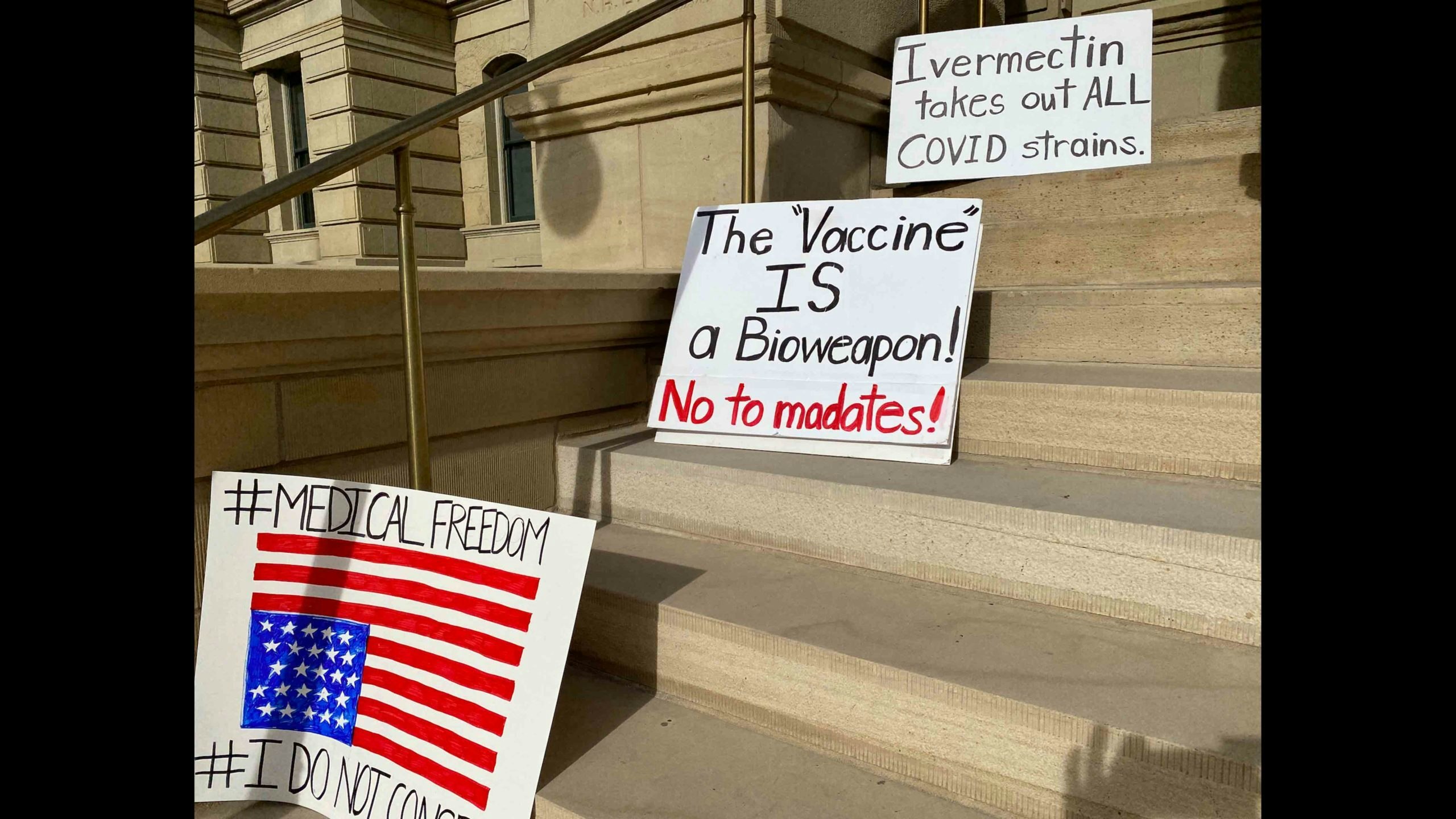By RJ Morgan, County 17
Following a lengthy discussion on Tuesday, the Campbell County Commissioners denied Campbell County Public Health’s (CCPH) request to move forward with a no-cost COVID-19 vaccine education plan.
The plan, if it had been approved, would have sought to further educate the community about the COVID-19 vaccines and would have been funded with leftover funds awarded to Campbell County through a federal COVID-19 education grant, of which $329,000 remains, according to CCPH Director Jane Glaser who addressed the commissioners during their regular meeting Nov. 17.
But with all but two commissioners, Rusty Bell and DG Reardon, voting against the measure, that money now goes away to be redistributed to another Wyoming community.
Before casting her vote against the education contracts, Commissioner Colleen Faber said enough is enough, there is already enough education going around, and that the Wyoming Department of Health already does enough.
“I hear the ads all day long,” Faber said. “I think we have the education. Let some of this money go back to the taxpayers who paid it in, maybe we won’t have so much to pay next time. We always have that dream.”
Bell, however, felt that sending the money back to be used by another community takes away an opportunity that could have benefited both Gillette and Campbell County.
“That money could help one of our local businesses pay their employees or even give a Christmas bonus during these tough times, so by sending it back is just going to inject money into another community’s economy. Why not be our community instead of Cheyenne,” Bell said prior to the vote.
Additional education is needed and is not a bad idea, Reardon added, pointing out that the vaccination rate in Campbell County continues to be the second-lowest in the state with only 25.48 percent of the entire considered fully vaccinated against COVID-19 as of Nov. 16.
“To Commissioner Faber’s point, I don’t agree that we are at the point of saturation. I think the point of saturation is a rate at 90 percent plus,” Reardon said. “It is a choice, a personal choice people have to make if someone wants the vaccine. I don’t think it hurts to educate people.”
Glaser said her department’s plan would have utilized Sylvestri Customization, which is already working with Public Health on suicide and substance abuse prevention campaigns, to handle social media-related COVID-19 education initiatives across Facebook, Instagram, Snapchat, YouTube, TikTok, and Google Display Ads.
Additionally, OC Equity, LLC, would have managed the larger campaign using local businesses to produce and distribute educational and promotional materials and convey information on the vaccines and COVID-19 from local physicians and professionals who Campbell County citizens would recognize.
According to OC Equity, LLC spokesman Mark Christensen, the funds to be approved and the budget developed for the grant allocated funds to more than a dozen local businesses.
Shelstad, however, took issue with the campaign’s wording, which he interpreted to say that residents needed to be vaccinated, rather than stating they have the right to choose.
“I’ll be the bad guy,” he said. “Reading through the agreement doesn’t really specifically explain what the educational piece or what the ad campaign component is. I’ve told you this before, I’ve got a real problem with campaigning for vaccination that doesn’t include telling people they have their own right to make their own choice. To be part of approving something that goes to a campaign that says you need to be vaccinated, I just don’t agree with that.”
Glaser said Shelstad’s assumption was incorrect.
“The campaign is going to be very neutral,” she said. “It’s going to provide information, provide where they can get the vaccination to educate people. At no point will there ever be in any of these campaigns any information given out that says you must or have to (get the vaccine). “
Glaser said it’s only about what the vaccines could do, where they are available, or who to call if you have questions or concerns.
“We are not going to go down the avenue of incentives because there’s a lot of restrictions on incentives. I know a lot of states are doing that. We are not in the business of mandating anybody to do anything but we do want to get the correct information out so people can make their own personal decisions.” Glaser said.





